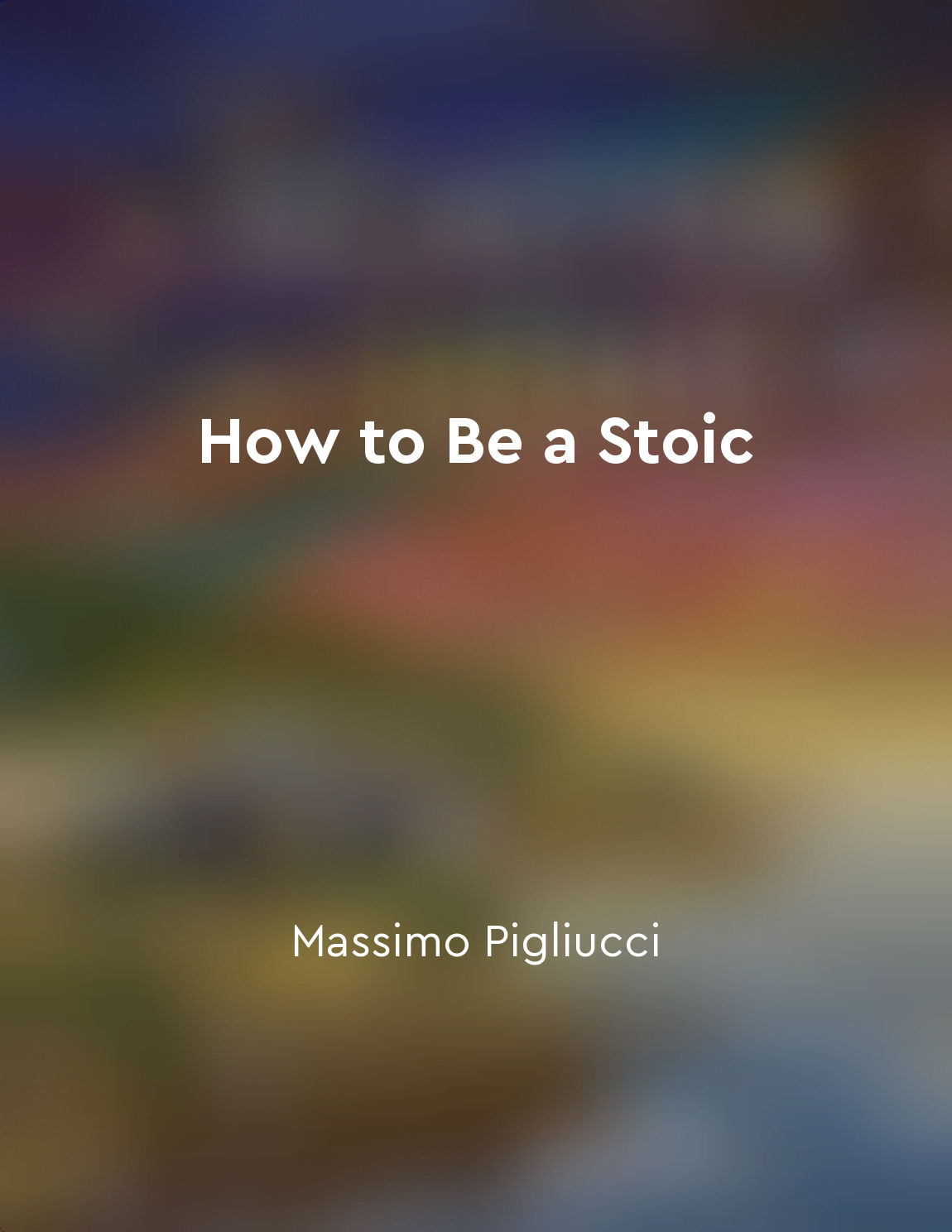Stoicism teaches the importance of selfreflection from "summary" of Lessons in Stoicism by John Sellars
The Stoics believed that self-reflection was a crucial practice for achieving wisdom and leading a virtuous life. By taking the time to examine our thoughts, actions, and emotions, we can gain a deeper understanding of ourselves and our place in the world. This process of introspection allows us to identify our strengths and weaknesses, as well as areas where we can improve and grow. Self-reflection also helps us to cultivate self-awareness, which is essential for developing resilience and emotional intelligence. By becoming more in tune with our inner thoughts and feelings, we can better navigate life's challenges and setbacks. This awareness enables us to respond to difficult situations with composure and clarity, rather than reacting impulsively or out of fear. Through self-reflection, we can also practice self-control and discipline, which are key virtues in Stoic philosophy. By examining our thoughts and impulses, we can learn to regulate our emotions and desires, rather than being controlled by them. This self-mastery allows us to make rational decisions based on reason and virtue, rather than being swayed by external influences or passions. Furthermore, self-reflection can help us to cultivate gratitude and contentment in our lives. By focusing on our blessings and accomplishments, rather than on what we lack, we can develop a sense of inner peace and fulfillment. This practice of gratitude allows us to find joy and meaning in the present moment, rather than constantly striving for more or feeling dissatisfied.- Self-reflection is a fundamental practice in Stoicism that enables us to cultivate wisdom, self-awareness, self-control, and gratitude. By taking the time to examine our thoughts and emotions, we can better understand ourselves and our place in the world, leading to a more virtuous and fulfilling life.
Similar Posts
Athens emerged as a dominant power in Greece
Athens, that city of thought and art, began to emerge as a dominant power in Greece during the sixth century B.
C. The Athenia...
Vulnerability is a key theme in romanticism
The idea that vulnerability is a central theme in romanticism is a complex and nuanced concept that requires careful considerat...
Stoicism provides guidance for dealing with difficult emotions
One of the central teachings of Stoicism is the idea that we have control over our own thoughts and reactions to external event...
Adapt to new situations
Adapting to new situations requires a willingness to let go of preconceived notions and embrace the unknown. It involves being ...
Stoics cultivate resilience and mental toughness
Stoicism emphasizes the importance of developing resilience and mental toughness in facing life's challenges. This philosophy t...

The importance of cultivating inner peace through Stoic practices
The Stoics believed that the key to a happy and fulfilling life lies in cultivating inner peace, which can be achieved through ...

Cultivating resilience helps us face life's challenges
Resilience is a vital quality that enables us to face life's challenges with courage and equanimity. It is the ability to bounc...

Cultivate a sense of inner peace and contentment
The Stoics believed that cultivating a sense of inner peace and contentment is crucial for leading a good and fulfilling life. ...
Stoics believe in living in accordance with nature
Stoics believe that living in accordance with nature is key to achieving tranquility and fulfillment in life. This concept is c...
Stoics believe in the power of reason and logic
Stoics hold reason and logic in high regard, considering them to be powerful tools in navigating the complexities of life. They...

